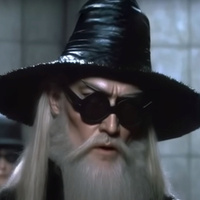 Ni Portoriko ne zna šta je. Imali su referendum 2020. posle koga nije ništa jasnije.
Ni Portoriko ne zna šta je. Imali su referendum 2020. posle koga nije ništa jasnije. USA - США - SAD

- Posts : 8095
Join date : 2020-09-07
- Post n°101
 Re: USA - США - SAD
Re: USA - США - SAD
A našao si primer...  Ni Portoriko ne zna šta je. Imali su referendum 2020. posle koga nije ništa jasnije.
Ni Portoriko ne zna šta je. Imali su referendum 2020. posle koga nije ništa jasnije.
 Ni Portoriko ne zna šta je. Imali su referendum 2020. posle koga nije ništa jasnije.
Ni Portoriko ne zna šta je. Imali su referendum 2020. posle koga nije ništa jasnije. _____
Sweet and Tender Hooligan

- Guest
- Post n°102
 Re: USA - США - SAD
Re: USA - США - SAD
Notxor wrote:A našao si primer...Ni Portoriko ne zna šta je. Imali su referendum 2020. posle koga nije ništa jasnije.
Referendum (neobavezujući) je imao dva ishoda - da Portoriko ostane neinkorporirani deo SAD ili da postane savezna država u okviru SAD.
Primer mi je fenomenalan, predednik koji ne zna koja je teritorija njegove države i to se doživljavalo kao njegov quirk, a i zašto bi to neko znao, ko će da nabroji sve te Guame, Samoe, Nju Hempšire i ostale uga buga arhipelage.

- Posts : 11141
Join date : 2014-10-28
Age : 45
- Post n°103
 Re: USA - США - SAD
Re: USA - США - SAD
ja ne znam pola gradova po srbiji gde se nalaze
backa palanka znam ono regiju ali da mi das kartu brt nemu
to bi bio muk
backa palanka znam ono regiju ali da mi das kartu brt nemu
to bi bio muk
_____
radikalni patrijarhalni feminista
smrk kod dijane hrk

- Posts : 4510
Join date : 2016-09-29
- Post n°104
 Re: USA - США - SAD
Re: USA - США - SAD
A soft-spoken 19-year-old told jurors he felt uncomfortable after he decided to alert the FBI about "surreal and scary" text messages from his father in the weeks before the Jan. 6 assault on the U.S. Capitol.
Testifying in the first trial related to the insurrection, Jackson Reffitt said his father Guy warned that he and others were about to "rise up" in a family text chain on Christmas Eve 2020.
ceo clanak
Testifying in the first trial related to the insurrection, Jackson Reffitt said his father Guy warned that he and others were about to "rise up" in a family text chain on Christmas Eve 2020.
ceo clanak
_____
THE space age is upon us. Rockets are leaving our globe at
speeds unheard of only a few years ago, to orbit earth, moon, and
sun. People have visited the moon, we have sent space probes to
all but one of the planets, and words like "orbit" and "satellite" are
picked up by children in the nursery.

- Posts : 11141
Join date : 2014-10-28
Age : 45
- Post n°105
 Re: USA - США - SAD
Re: USA - США - SAD
pa i ja bih pre rasturio porodicu zbog nekog jurisa na skupstinu
nego zbog neke soraje brt
nego zbog neke soraje brt
_____
radikalni patrijarhalni feminista
smrk kod dijane hrk

- Posts : 3631
Join date : 2018-07-03
- Post n°106
 Re: USA - США - SAD
Re: USA - США - SAD
If you were wondering about whether the Russians really influence our social media, compare the list of top Facebook posts from a few weeks ago to this week, when Russia couldn't access its foreign cash reserves. Rather telling. pic.twitter.com/tneHdNkOaC
— Mark Hachman (@markhachman) March 4, 2022
_____
"Sisaj kurac, Boomere. Spletkario si i nameštao ban pa se sad izvlačiš. Radiša je format a ti si mali iskompleksirani miš. Katastrofa za Burundi čoveče.
A i deluje da te napustio drugar u odsudnom trenutku pa te spašavaju ova tovarka što vrv ni ne dismr na ribu, to joj se gadi, i ovaj južnjak koji o niškim kafanama čita na forumu. Prejaka šarža." - Monsier K.

- Posts : 7692
Join date : 2020-03-05
- Post n°107
 Re: USA - США - SAD
Re: USA - США - SAD
In other news...
Republicans and Democrats Unite To Slam Lindsey Graham for Calling for Putin’s Assassination
Pence hits Trump: No room in GOP for 'apologists for Putin'
Republicans and Democrats Unite To Slam Lindsey Graham for Calling for Putin’s Assassination
Pence hits Trump: No room in GOP for 'apologists for Putin'
_____
"Burundi je svakako sharmantno mesto cinika i knjiskih ljudi koji gledaju stvar sa svog olimpa od kartona."
“Here he was then, cruising the deserts of Mexico in my Ford Torino with my wife and my credit cards and his black-tongued dog. He had a chow dog that went everywhere with him, to the post office and ball games, and now that red beast was making free with his lion feet on my Torino seats.”

- Posts : 7692
Join date : 2020-03-05
- Post n°109
 Re: USA - США - SAD
Re: USA - США - SAD
https://www.theatlantic.com/ideas/archive/2022/03/stay-calm-and-dont-advocate-war-against-putin/624169/
Indeed, one more reason not to let our emotions get the better of us is that the only way Putin can save himself from his own fiasco is to bait the West into an attack. Nothing would help him more, at home or abroad, than if the United States or any other NATO country were to enter direct hostilities with Russian forces. Putin would then use the conflict to rally his people and threaten conventional and nuclear attacks against NATO. He would become a hero at home, and Ukraine would be forgotten.
_____
"Burundi je svakako sharmantno mesto cinika i knjiskih ljudi koji gledaju stvar sa svog olimpa od kartona."
“Here he was then, cruising the deserts of Mexico in my Ford Torino with my wife and my credit cards and his black-tongued dog. He had a chow dog that went everywhere with him, to the post office and ball games, and now that red beast was making free with his lion feet on my Torino seats.”

- Posts : 15576
Join date : 2016-03-28
- Post n°111
 Re: USA - США - SAD
Re: USA - США - SAD
https://www.facebook.com/100002313436825/posts/4602790563141346/




_____
Što se ostaloga tiče, smatram da Zapad treba razoriti
Jedini proleter Burundija
Pristalica krvne osvete

- Posts : 7330
Join date : 2019-11-04
- Post n°112
 Re: USA - США - SAD
Re: USA - США - SAD
Možda bolje ovde, da ne zatrpavamo ratnu temu
https://www.newstatesman.com/ideas/2022/03/john-mearsheimer-and-the-dark-origins-of-realism
John Mearsheimer and the dark origins of realism
Rage aimed at the eminent international relations scholar reflects liberal frustration over the West's limited power to prevent Russia's war in Ukraine.
By Adam Tooze
“Why is Ukraine the West’s fault?” This is the provocative title of a talk by Professor John Mearsheimer – a famous exponent of international relations (IR) realism – given at an alumni gathering of the University of Chicago in 2015. Since it was first posted on YouTube, it has been viewed more than 18 million times.
In 2022 Mearsheimer is still delivering his message, most explosively on 1 March in an ill-advised down-the-telephone interview to the New Yorker. Against the backdrop of the Russian invasion of Ukraine, Mearsheimer’s provocation is causing outrage. And it raises the question: what is the realism that Mearsheimer claims to espouse?
On the one hand, Mearsheimer is disarmingly even-handed. The push for Nato expansion in 2008 to include Georgia and Ukraine was a disastrous mistake. The overthrow of the Moscow-backed Viktor Yanukovych regime in 2014, a revolution supported by the West, antagonised Russia further. The West should accept responsibility for having created a dangerous situation by extending an anti-Soviet alliance into what is left of Russia’s sphere of influence. And then comes the inflammatory conclusion: Putin’s violent pushback should not come as a surprise.
In 2015, Mearsheimer’s stance was already controversial. Today, in light of Putin’s flagrant breach of international law, it has taken on a new life. On 28 February, when the Russian foreign ministry tweeted its endorsement of Mearsheimer’s view, it was pounced on by Anne Applebaum, the noted historian and campaigner for post-Soviet eastern European liberalism.
“And there it is,” Applebaum gloated, with reference to the foreign ministry’s tweet, “now wondering if the Russians didn’t actually get their narrative from Mearsheimer et al. Moscow needed to say West was responsible for Russian invasions (Chechnya, Georgia, Syria, Ukraine), and not their own greed and imperialism. American academics provided the narrative.”
Over the days that followed, Appelbaum’s denunciation attracted a flurry of support, and students at the University of Chicago launched a menacing open letter demanding to know whether Mearsheimer was on the Russian payroll.
The scandal entails Mearsheimer’s refusal to see Putin’s aggression as anything other than the behaviour of a great power at bay. Unlike Applebaum, Mearsheimer has little at stake in either Russian or Ukrainian history. What he is doing is simply elucidating the implications of his favourite IR theory, known as “offensive” or “great power” realism. Russia is a great power. Great powers, the theory goes, guard their security through spheres of interest. The US does so too, in the form of the Monroe doctrine and more recently in the Carter doctrine, which extends America’s interests to the Persian Gulf. If necessary, those zones are defended with force, and anyone who fails to recognise and respect this fails to grasp the violent logic of international relations.
As for Applebaum’s allegation – for which she offered no evidence – Mearsheimer would presumably shrug. After all, Applebaum isn’t claiming that Mearsheimer and his ilk – “American academics” – gave the Russians the idea. Putin doesn’t need American professors to convince him that Russia is a great power. Great powers use fair means and foul. Instrumentalising arguments from foreign academics is the least of their sins.
In so far as ideas can actually influence international relations, given the determinative force that Mearsheimer accords to geography, economics and military power, the most that one can hope for is to bring decision-makers and the general public to recognise each other’s interests and spheres of influence and pull back from unnecessary confrontation. What realism means in this context is clarity about the underlying structure and a resigned acceptance of its logic.
In the 2000s, it was this same stance that motivated Mearsheimer to speak out against what he thought was the undue influence of the Israel lobby over US policy. That influence muddied American policymakers’ understanding of their country’s true interests in the Middle East. In the current situation, what Mearsheimer demands is that we rid ourselves of the idea that Nato’s expansion to the East is either an irresistible trend of history or a crusade we must fight for.
The implications of Mearsheimer’s view for Ukrainian sovereignty are, undeniably, grim. It will forever be curtailed by the fate of being within Russia’s sphere of influence. But as unappetising as this is, if one fails to recognise the facts of Russian power and interest, the outcome will be even worse. Ukraine risks being battered to pieces. Mearsheimer does not deny Russian aggression, he simply takes it as a given. The entire force of his polemic is directed at the EU and Nato for leading Ukraine “down the primrose path”. Given the West’s talk about eventual Nato membership and association agreements with the EU, how were politicians in Ukraine to resist the appeal of eventual inclusion? But if they succumb to that temptation they put themselves at risk of Russia’s wrath.
If you ask Mearsheimer about the historical source for his lucid but dark view of the world, he will most likely tell you that it is an ancient wisdom that originates in the writings of the Greek historian Thucydides. But that is an invented tradition assembled ex-post by the discipline of IR as it established itself at American universities in the Cold War era.
As Matthew Specter’s fascinating new history The Atlantic Realists (2022) shows us, a more plausible line of descent derives not from the ancients, or even from the realpolitik of the age of Bismarck, which operated within the relatively settled terrain of the 19th-century balance of power, but instead the age of imperialism. It was in the late 19th century, with the closing of the global frontier and the fashion for social Darwinism, that a vision of the world first crystallised in which over-mighty powers jostled for space on a limited planet.
For Specter, a line runs straight from the expansive naval theorists and geographers of the pre-1914 period, such as Friedrich Ratzel and Alfred Mahan, to the German geopoliticians of the interwar period – notably Karl Haushofer and Carl Schmitt – and from there to the classic texts of American realism, notably the writing of Hans Morgenthau. Like Mearsheimer, Carl Schmitt, the Nazi lawyer and theorist of Grossraum, envisioned a world order based on dividing the planet between large spatial blocs, each dominated by a major power. A characteristic feature of this body of thought is its moral relativism. This relativism is not founded in philosophy so much as the pluralism of spheres of power. Like Mearsheimer, Haushofer and Schmitt envisioned Germany’s Grossraum as an equivalent to the British Empire and America’s Monroe doctrine. The same point was made by Japanese advocates of the Greater Asian Coprosperity Sphere in the late 1930s.
Part of the reason why this history is obscure is that it has always been scandalous to liberals. The frank assertion of the claims of power sits poorly with an ideal of universal rights. In the Second World War, German geopoliticians like Haushofer found themselves anathematised by the Allied press and put in the dock at Nuremberg. The condemnation was confusing to them, because they openly acknowledged how much they owed to the example of America’s own expansion in the 19th century. To overcome this embarrassment, as Specter shows in a series of head-turning chapters, realism in the US had to invent a new history for itself which positioned it as a more abstract theory, detached from its imperialists roots.
Specter is a Germanist. His previous book was an intellectual biography of the Frankfurt School philosopher Jürgen Habermas. Especially for an American audience, linking the kind of IR realism that is taught in American universities to dark roots in the imperialist era is a considerable intellectual coup. But it comes at the price of a narrowing of historical vision. If Mearsheimer is a typical exponent of great power realism, then his interests are defined less by the questions of late 19th-century imperialism than by the question of why the world went to war in 1914. The intellectual genealogy to which he belongs descends above all from the aftermath of the First World War and the anguished, multinational effort to make sense of what went wrong in the July Crisis.
In that debate, the German-American exchange that Specter focuses on, was part of a wider argument that included figures like the historian EH Carr and philosopher Goldsworthy Lowes Dickinson in Britain, and left-wing historians of international relations like Charles Beard in the United States. There is still today an affinity between realists like Mearsheimer, and the foreign policy left, who appreciate his unflinching articulation of the logic of power.
It should be acknowledged that his approach offers real insight. Indeed, though it is not stated out loud, Mearsheimer’s diagnosis of the Ukraine crisis is shared de facto by a large part of the US foreign policy establishment. The promise of Nato membership bounced through by the Bush administration in 2008, was an act of hubris. The West will not abandon Ukraine, but nor will it intervene militarily. Part of the rage against Mearsheimer is deflected frustration on the part of liberals who recognise in his frankness with regards to the actual limits of Western commitment – and there are good reasons for those limits. A direct confrontation with Russia is something that Nato has always tried to avoid. The US made it clear to Putin that there would be no military participation. Emergency weapons deliveries go a long way towards blurring that line. A no-fly zone would be lethally dangerous.
But for all that, to claim this as an intellectual victory for Mearsheimer’s realism would be perverse. He is no doubt right about the underlying causes of tension. But that is not the same as actually explaining war, any more than gesturing to imperialism is an adequate explanation for why the Kaiser gave the Austrians a blank cheque in July 1914. The realist model is grossly underspecified and fails to grasp the qualitative shift implied by the opening of hostilities. The Prussian general Carl von Clausewitz may have said that war is the extension of policy by other means. But that still raises the question of why anyone, great power or not, would resort to such a radical and dangerous means.
In Moscow itself, none of the serious foreign policy establishment – all devotees to Russia’s future as a great power – believed that Putin would go to war. They were incredulous not because they do not understand the logic of power, but precisely because they do. They saw no good reason for Russia to risk employing the means of all-out war, with all its hazards, uncertainties and costs. Events are proving them right.
Morality and legality are one reason for opposing war. The other is simply that over the last century at least, it has a poor track record for delivering results. Other than wars of national liberation, one is hard pressed to name a single war of aggression since 1914 that has yielded clearly positive results for the first mover. A realism that fails to recognise that fact and the consequences that have been drawn from it by most policymakers does not deserve the name. That does not mean that wars will not occur. But to postulate the future as an endless repetition of the hyped-up militarism of 1914 is to deny any capacity for collective learning. And it is counterfactual, especially in an age of nuclear armaments. As Specter shows in his meticulous chapters on trans-Atlantic realism in the postwar period, Vietnam and nuclear armaments led the classic realists to take a decidedly cautious approach towards war. In this regard Mearsheimer’s offensive realism, a coinage of the post-Cold War era, fully deserves its name.
In light of war’s hazards, it is tempting to say that if Mearsheimer’s glib talk about the logic of great power conflict did indeed provide Putin with an excuse for Russia’s disastrous invasion, rather than a servant of Russia, Mearsheimer is a secret weapon in the armoury of the West, helping to lure Putin to disaster on the rocks of a grisly new Afghanistan. If we want to understand what happened in the Kremlin to precipitate the criminal folly of the invasion, what we need are not platitudes about the security dilemmas of great powers, but a forensic account of an epic failure of decision-making and intelligence. And we need to understand not only Russia, but also how Ukraine, a state that seemed so weak, has so far been capable of mounting such effective resistance. Above all, we need to start by acknowledging that for the vast majority of analysts, this war has delivered a shock that does not confirm, but puts in question our sense of reality.
It drives home the point that adopting a realistic approach towards the world does not consist in always reaching for a well-worn toolkit of timeless verities, nor does it consist in affecting a hard-boiled attitude so as to inoculate oneself forever against liberal enthusiasm. Realism, taken seriously, entails a never-ending cognitive and emotional challenge. It involves a minute-by-minute struggle to understand a complex and constantly evolving world, in which we are ourselves immersed, a world that we can, to a degree, influence and change, but which constantly challenges our categories and the definitions of our interests. And in that struggle for realism – the never-ending task of sensibly defining interests and pursuing them as best we can – to resort to war, by any side, should be acknowledged for what it is. It should not be normalised as the logical and obvious reaction to given circumstances, but recognised as a radical and perilous act, fraught with moral consequences. Any thinker or politician too callous or shallow to face that stark reality, should be judged accordingly.

- Posts : 82800
Join date : 2012-06-10
- Post n°113
 Re: USA - США - SAD
Re: USA - США - SAD
Super tekst.
_____
"Oni kroz mene gledaju u vas! Oni kroz njega gledaju u vas! Oni kroz vas gledaju u mene... i u sve nas."
Dragoslav Bokan, Novi putevi oftalmologije

- Posts : 11765
Join date : 2014-10-27
Location : kraljevski vinogradi
- Post n°114
 Re: USA - США - SAD
Re: USA - США - SAD
Ali šteta za dobru raju s PPP, uhvatili se ovog kao brodolomac daske.
_____
Ha rendelkezésre áll a szükséges pénz, a vége általában jó.

- Posts : 82800
Join date : 2012-06-10
- Post n°115
 Re: USA - США - SAD
Re: USA - США - SAD
He tells it like it is!
_____
"Oni kroz mene gledaju u vas! Oni kroz njega gledaju u vas! Oni kroz vas gledaju u mene... i u sve nas."
Dragoslav Bokan, Novi putevi oftalmologije

- Posts : 8696
Join date : 2016-10-04
- Post n°117
 Re: USA - США - SAD
Re: USA - США - SAD
Како ово горе може бити супер текст?
"Moscow needed to say West was responsible for Russian invasions (Chechnya, Georgia, Syria, Ukraine"
После овога ми се није даље читало.
"Moscow needed to say West was responsible for Russian invasions (Chechnya, Georgia, Syria, Ukraine"
После овога ми се није даље читало.

- Posts : 3395
Join date : 2021-09-13
- Post n°118
 Re: USA - США - SAD
Re: USA - США - SAD
to je citat En Eplbaum, nisu autorove reči
_____
ja se rukovodim logikom gvozdenih determinizama

- Posts : 11662
Join date : 2018-03-03
Age : 36
Location : Hotline Rakovica
- Post n°119
 Re: USA - США - SAD
Re: USA - США - SAD
Pratim Mirsajmera vec godinama, a kacio sam ga i ovde. Mudar starac. Mada moram priznati da, u svetlu tekucih dogadjaja, a usled njegove nagle popularnosti, klecam pred nekim niskim strastima.
Tekst je nefer. Gledao sam mnoga Mirsajmerova predavanja, i zaista se ne secam da je covek ikada rekao da bastini tradiciju tumacenja geopolitike koja vuce od Tukidida i realpolitike XIX veka. Ono sto ipak obavezno pomene je kako se oseca otudjeno u SAD, a kao "medju svojima" u Kini i Rusiji. Biva, njegova linija razmisljanja je tamo mejnstrim. Uzgred receno, normalno je da ce njegov pristup biti tek od skora, jer je globalna situacija kojom se bavi tek od skora.
Druga stvar, autor kroz tekst provlaci krajnje upitnu tezu, a onda na Mirsajmera svaljuje odgovornost da je razjasni. Biva da je, barem u zadnjih sto godina, rat po pravilu kontraproduktivan za zavojevaca. Nagorno-Karabah, Krim, Liban '06, Jugoslavija '99, Kipar, Panama, Granada... Na stranu sto je pitanje koliko su i ovi skorasnji "porazi" Amerike po pizdojebinama uistinu porazi. Na Avganistan su potroseni trilioni, ali su potroseni na americku namensku industriju, americke podizvodjace i NGO na terenu... To su bili transferi bogatstva zamaskirani u ratove.
Autor tvrdi kako: ''none of the serious foreign policy establishment – all devotees to Russia’s future as a great power – believed that Putin would go to war.'' Zaista ne znam odakle mu ovo, niti mogu da zamislim da neko u ruskom "foren polisi establismentu", ma sta god to bilo, sme i moze da istupa kontra zvanicne politike Moske. Ako su bili skepticni u vezi rata, to je bilo zato sto im je to bio zadatak. Bilo je potrebno zamazivati oci svetskoj javnosti pred samu invaziju, pa u sklopu toga i ponizavati britanske ministarke. Invazija je bila odlucena jos u septembru prosle godine. Svi su to znali. I jebeni Makedonci su to znali. Ali eto, po autoru, ruski foren establisment to nije znao. Oni su u neverici. Idi begaj.
Nije na Mirsajmeru da pravi analize borbene gotovosti Rusije i Ukrajine, niti racionalnost njihovih trenutnih vodja, vec da razjasni motivacije koje ih, kao politicke zajednice, vode u spoljnoj politici. Druga stvar, ako je autor vec doveo u pitanje nase analize i osecaj za realnost, ne znam na osnovu cega trazi "a forensic account of an epic failure of decision-making and intelligence".
Ali jedno ne iskljucuje drugo. U ratove ulaze politicke zajednice - na osnovu interesa, a moralne sudove o ratovima donose pojedinci - na osnovu refleksije i savesti. Dakle, savrseno je moguce biti "realan" u analizi geopolitickih zbivanja, a onda savesan u njihovoj moralnoj oceni. Negirati mogucnost hladne analize geopolitickih zbivanja je suludo i antinaucno.
Tekst je nefer. Gledao sam mnoga Mirsajmerova predavanja, i zaista se ne secam da je covek ikada rekao da bastini tradiciju tumacenja geopolitike koja vuce od Tukidida i realpolitike XIX veka. Ono sto ipak obavezno pomene je kako se oseca otudjeno u SAD, a kao "medju svojima" u Kini i Rusiji. Biva, njegova linija razmisljanja je tamo mejnstrim. Uzgred receno, normalno je da ce njegov pristup biti tek od skora, jer je globalna situacija kojom se bavi tek od skora.
Druga stvar, autor kroz tekst provlaci krajnje upitnu tezu, a onda na Mirsajmera svaljuje odgovornost da je razjasni. Biva da je, barem u zadnjih sto godina, rat po pravilu kontraproduktivan za zavojevaca. Nagorno-Karabah, Krim, Liban '06, Jugoslavija '99, Kipar, Panama, Granada... Na stranu sto je pitanje koliko su i ovi skorasnji "porazi" Amerike po pizdojebinama uistinu porazi. Na Avganistan su potroseni trilioni, ali su potroseni na americku namensku industriju, americke podizvodjace i NGO na terenu... To su bili transferi bogatstva zamaskirani u ratove.
Autor tvrdi kako: ''none of the serious foreign policy establishment – all devotees to Russia’s future as a great power – believed that Putin would go to war.'' Zaista ne znam odakle mu ovo, niti mogu da zamislim da neko u ruskom "foren polisi establismentu", ma sta god to bilo, sme i moze da istupa kontra zvanicne politike Moske. Ako su bili skepticni u vezi rata, to je bilo zato sto im je to bio zadatak. Bilo je potrebno zamazivati oci svetskoj javnosti pred samu invaziju, pa u sklopu toga i ponizavati britanske ministarke. Invazija je bila odlucena jos u septembru prosle godine. Svi su to znali. I jebeni Makedonci su to znali. Ali eto, po autoru, ruski foren establisment to nije znao. Oni su u neverici. Idi begaj.
If we want to understand what happened in the Kremlin to precipitate the criminal folly of the invasion, what we need are not platitudes about the security dilemmas of great powers, but a forensic account of an epic failure of decision-making and intelligence. And we need to understand not only Russia, but also how Ukraine, a state that seemed so weak, has so far been capable of mounting such effective resistance. Above all, we need to start by acknowledging that for the vast majority of analysts, this war has delivered a shock that does not confirm, but puts in question our sense of reality.
Nije na Mirsajmeru da pravi analize borbene gotovosti Rusije i Ukrajine, niti racionalnost njihovih trenutnih vodja, vec da razjasni motivacije koje ih, kao politicke zajednice, vode u spoljnoj politici. Druga stvar, ako je autor vec doveo u pitanje nase analize i osecaj za realnost, ne znam na osnovu cega trazi "a forensic account of an epic failure of decision-making and intelligence".
And in that struggle for realism – the never-ending task of sensibly defining interests and pursuing them as best we can – to resort to war, by any side, should be acknowledged for what it is. It should not be normalised as the logical and obvious reaction to given circumstances, but recognised as a radical and perilous act, fraught with moral consequences.
Ali jedno ne iskljucuje drugo. U ratove ulaze politicke zajednice - na osnovu interesa, a moralne sudove o ratovima donose pojedinci - na osnovu refleksije i savesti. Dakle, savrseno je moguce biti "realan" u analizi geopolitickih zbivanja, a onda savesan u njihovoj moralnoj oceni. Negirati mogucnost hladne analize geopolitickih zbivanja je suludo i antinaucno.
_____
Sve čega ima na filmu, rekao sam, ima i na Zlatiboru.
~~~~~
Ne dajte da vas prevare! Sačuvajte svoje pojene!

- Posts : 713
Join date : 2015-08-30
- Post n°120
 Re: USA - США - SAD
Re: USA - США - SAD
U onom intervjuu Njujorkeru, Mirshajmer je rekao zaista dosta nenaucnih stvari.
Imam veliki problem sa tzv. naucnicima koji decenijama brane jednu tezu i tako grade karijeru, umesto da modifikuju tezu jer je realnost cesto demantuje. Nauka je metod kritike postojecih teza a ne ljubomorno insistiranje na svojoj omiljenoj tezi.
Imam veliki problem sa tzv. naucnicima koji decenijama brane jednu tezu i tako grade karijeru, umesto da modifikuju tezu jer je realnost cesto demantuje. Nauka je metod kritike postojecih teza a ne ljubomorno insistiranje na svojoj omiljenoj tezi.

- Posts : 11662
Join date : 2018-03-03
Age : 36
Location : Hotline Rakovica
- Post n°121
 Re: USA - США - SAD
Re: USA - США - SAD
Pa sada tesko. Lik je trenutno popularan ko koreanska pop zvezda. Samo sto mi i komsijski pas znalacki zabrinuto ne posalje link sa onim njegovim klipom. Koji btw ima 18m pregleda. Mislim da kad se skupe pregledi celokupne konkurencije na yt, da nema toliko pregleda.
_____
Sve čega ima na filmu, rekao sam, ima i na Zlatiboru.
~~~~~
Ne dajte da vas prevare! Sačuvajte svoje pojene!

- Posts : 11765
Join date : 2014-10-27
Location : kraljevski vinogradi
- Post n°122
 Re: USA - США - SAD
Re: USA - США - SAD
Polipe, ti prigovori su ti eristički, batali. Ok, dirno ti u senseia, otrpi, budi kao banbusova grana.
Ključni kritički argument u textu je potpuno valjan, realizam radi u oba smjera. Što Putin nije realist, aha, on je slijepa sila prirode.
Ključni kritički argument u textu je potpuno valjan, realizam radi u oba smjera. Što Putin nije realist, aha, on je slijepa sila prirode.
_____
Ha rendelkezésre áll a szükséges pénz, a vége általában jó.

- Posts : 5620
Join date : 2016-01-26
- Post n°123
 Re: USA - США - SAD
Re: USA - США - SAD
Anduril wrote:U onom intervjuu Njujorkeru, Mirshajmer je rekao zaista dosta nenaucnih stvari.
Imam veliki problem sa tzv. naucnicima koji decenijama brane jednu tezu i tako grade karijeru, umesto da modifikuju tezu jer je realnost cesto demantuje. Nauka je metod kritike postojecih teza a ne ljubomorno insistiranje na svojoj omiljenoj tezi.
Предвидео је да ће "Украјину да разбуцају" пре 5 година ако не крене ка неутралности и то се и десило.
То је учинио кроз призму своје теорије, дакле теорија постоји и објашњава понашање актера у међународним односима. За сада све ради врло научно. Посматраш свет, објашњаваш неке законитости, постулираш теорију и хипотезу и после ту хипотезу доказујеш.
Детаље тока рата није могао да предвиди нити то његов модел узима у обзир, већ само угрубо трасира кретања. Као сезонска временска прогноза.
Такође и ако слушамо самога Путина ствари иду у правцу теоријског објашњења - "денацификација и демилитаризација" Украјине су постављени циљеви, дакле неутрализација Украјине као моћног ентитета слободног да уђе у западну сферу утицаја. Није у питању нека империјална експанзија него реактивна "специјална војна операција". Циљ је полупати Украјину а све друге, снажније мере анексије и асимилације ако прође прође.
Са друге стране, да ли тај "западни утицај" подразумева и ЕУ и НАТО или само НАТО, је већ друго питање.
Још један чланак пљује Миршајмера али признаје да је био у праву и да школа реализма објашњава угрубо доста тога, али да је ђаво у детаљима - и Пољска и прибалтичке земље су у природној зони руског утицаја, па су чврсто у НАТОу. Постоји шанса да се и Украјина избори за то, нико није предвиђао оволики украјински отпор и оволику "националну консолидацију" тј. мржњу према Русији.
https://www.nytimes.com/2022/03/09/opinion/ukraine-russia-invasion-west.html
They Predicted the Ukraine War. But Did They Still Get It Wrong?
- Spoiler:
It’s a curious feature of Western debate since Russia’s invasion of Ukraine that a school of thought that predicted some version of this conflict has been depicted as discredited by the partial fulfillment of its prophecies.
From the 1990s to the 2010s, from George Kennan’s opposition to NATO expansion to John Mearsheimer’s critique of American involvement in Ukraine, thinkers associated with foreign policy realism — the school known for its cold-eyed expectation of great power conflict, its doubts about idealistic visions of world order — argued that the attempt to integrate Russia’s borderlands into Western institutions and alliances was poisoning relations with Moscow, making great-power conflict more likely, and exposing nations like Ukraine to disastrous risks.
“The West is leading Ukraine down the primrose path,” Mearsheimer averred in 2015, “and the end result is that Ukraine is going to get wrecked.”
But now that Ukraine is, in fact, being wrecked by a Russian invasion, there’s a widespread view that his realist worldview lies in ruins too — that Mearsheimer has “lost his reputation and credibility” (to quote the Portuguese thinker Bruno Maçães) and that the realist conception of nations as “pieces in a game of Risk” with “eternal interests or permanent geopolitical orientations, fixed motivations or predictable goals” (to quote Anne Applebaum of The Atlantic) should be discarded on the evidence of Vladimir Putin’s invasion and the Ukrainian response.
The larger critique of realism that Applebaum and Maçães are speaking for goes something like this: Yes, realists like Mearsheimer predicted some kind of conflict over Ukraine. But realism’s predictions still did not describe reality, for three reasons. First, the predictions imagined a defensive logic to Russian strategic conduct, oriented around the protection of a sphere of influence, a fear of encirclement by NATO. But the decision to invade seems to have been motivated more by Putin’s professed and very personal desire to restore a mystical vision of greater Russia — a grand ideological idea that the mere Western pledge not to admit Ukraine to NATO was unlikely to appease.
Second, the realist predictions underestimated the agency and strength of Ukrainians themselves, treating Russia’s near abroad as a landscape where only great-power force projection really mattered, ignoring Ukraine’s potential capacity — now demonstrated on the battlefield — to resist Russia and rally global support even without direct military support from the United States or NATO.
Finally, the realist predictions drained the moral dimension out of global politics, effectively legitimizing imperialist appetites and “blaming the victim,” as it were, when the moral responsibility for aggression ultimately rests with the aggressor, not with nations merely seeking self-determination or mutual defense.
As someone who considers himself a realist (to the extent that it makes sense for a newspaper columnist to claim such affinities), I think part of this critique has bite. For instance, my sense is that because today’s realist thinkers mostly operate within the liberal West and define themselves against its pieties — especially the globalist utopianism that had so much purchase in the post-Cold War era — there is a constant temptation to assume that nonliberal regimes must be more rational actors, more realist in their practices and aims, than the naïve idealists in America or Europe. And thus when a crisis comes, it must be the unrealism of the West that’s primarily, even essentially, at fault.
You can see this temptation at work in the interview Mearsheimer gave to Isaac Chotiner of The New Yorker, published soon after the Russian invasion began. On the one hand the interview offers a perspicacious realist critique of how idealism led America astray in the George W. Bush era, via a naïve theory of how aggressive war might democratize in the Middle East.
But then when it comes to Putin’s aggressive war, Mearsheimer seems to assume that the Russian president thinks like him, the realist, rather than like the utopian politicians of the West. Putin, he says, “understands that he cannot conquer Ukraine and integrate it into a greater Russia or into a reincarnation of the former Soviet Union.” And if the United States only worked harder “to create friendly relations” with Moscow, Mearsheimer argues, there could be a tacit American-Russian “balancing coalition” against the rising power of China.
But why should Putin necessarily be immune from the hubris and delusions of Western leaders? Why should we assume that he doesn’t dream of reintegrating Ukraine and Belarus into a greater Russia? Why should we take for granted that the right diplomatic strategy will bring him into an American coalition against China, when he might instead be committed to a sweeping ideological vision of Eurasian power aligned against the decadent West?
Why should we assume, in other words, that structural and schematic explanations of Putin’s war are more important than personal and ideological explanations? After all, as the historian Adam Tooze points out, it appears that very few members of the Russian foreign policy elite — all presumably opponents of NATO expansion, all “devotees to Russia’s future as a great power” — actually believed that Putin would invade. And if so many participants in Putin’s regime, all good servants of the national interest as realists define it, wouldn’t have made his fateful choice, then did realist premises actually predict the war itself?
Just as important, did they predict the way the war has played out so far? I myself did not: My assumption was that Ukraine might mount a strong resistance in the western part of its territory, but that Russia would sweep pretty easily to the Dnieper and probably put Volodymyr Zelensky’s government to flight. (Some version of this assumption was shared by U.S. intelligence, which was predicting the quick fall of Kyiv two days into the war.) After almost two weeks of stalled-out offensives and mounting Russian casualties, that faulty assumption does look a bit like a Risk-board view of the world, where all that matters is positioning and pieces, not patriotism, morale, leadership and luck.
And there are a lot of ways that this kind of Risk-board mentality can deceive. Flash back a few decades, for instance, to the late Cold War, and a crude realist analysis might have insisted that Poland would always be in some kind of deep thrall to Russia — because it had so often been dominated by Moscow, its geography left it so open to invasion from the east, and so on — and that it was strategic folly to imagine otherwise. But Polish leadership and patriotism, Soviet weakness and unexpected historical events all contrived to change that calculus, so that today Poland’s strategic independence and Western alignment, while hardly invulnerable, both look relatively secure.
Is it unrealistic for Kyiv to aspire to what Warsaw has gained? Right now I would still say yes. But is it impossible, in the way that some realist thinking tends to suggest — as though some law of physics binds Ukraine to Russia? No: I think anyone watching this war so far, watching both the struggles of the Russian military and the solidifying of a Ukrainian national consciousness, would have to give more credit to long-term Ukrainian ambitions, and a little less to the inevitability of Russian regional dominance.
So those are two places where realist theory, or at least certain intellectual temptations associated with realism, has suffered from its contact with the reality of war so far.
But now let me say something in realism’s defense. What we have learned this winter is that aggressive Russian power is weaker, and united Western power stronger, than a lot of prewar analysis assumed — meaning that American decline and European decadence are not so far advanced as it has sometimes lately seemed.
But look at the global response to the war in Ukraine — the tacit support for Russia from Beijing, the neutrality of India, the cautious, self-interested reactions of the Gulf States — and you still see the landscape whose emergence probably encouraged Putin to make his gamble: a world where American hegemony is fading, where new great powers and “civilization-states” are bent on pursuing their own interests, and where 1990s-era dreams of moral universalism and liberal consensus are giving way to hard realities of cultural difference, moral relativism and post-liberal political competition.
Indeed, even the rallying of Europe against Russia, the talk of rearmament and energy independence, fits this mold, because it represents a dawning recognition of continental interest as much as a stirring of cosmopolitan idealism. Yes, the inspirational example of Zelensky matters, but the fundamental reality is that under conditions of threat and competition, Europe is cutting short its holiday from history and beginning to behave like a great power in its own right — just as realist theory would predict.
And if those threatening and competitive conditions are somewhat more favorable to the West than it appeared three weeks ago, they are still fundamentally hostile to the kind of crusading liberalism that was so powerful in the Clinton and Bush presidencies and lingered in the Obama years. What we have gained so far from Russia’s stumbles is the chance at a more favorable balance of power in a multipolar world, and that’s a very good thing. But the war is far from over, and the most plausible “good” outcome is still a realist’s peace, not an idealist’s triumph — one that will still probably leave Putin in power, with Crimea and the Donbas in his hands, and Russia more integrated with (and subordinate to) our rivals in Beijing.
Are we allowed to hope for a better outcome, where Russians rise up, democratic revolution flowers and (in the poetry of the 1990s) “hope and history rhyme”? Certainly: A realism that cannot allow for idealistic possibilities is itself unreal. But in a conflict with a nuclear power, fought on its own borderlands, to seek that ideal outcome as a primary goal — to pursue total victory and regime change rather than provisional stability — is to court disasters worse than the ones that have befallen us in any recent war.
And if realism didn’t anticipate everything about the current situation, it still has this fundamental insight to offer: The revolutionary moments in history are also the exceptional ones, and the most important task of statesmen is to prevent moments of great crisis from yielding tragedies too terrible to bear.
_____
Burundi is an exception among other nations because it is a country which gave God first place, a God who guards and protects from all misfortune.
Burundi... opskurno udruženje 20ak levičarskih intelektualaca, kojima je fetiš odbrana poniženih i uvredjenih.

- Posts : 3806
Join date : 2020-09-27
Location : Waystone Inn
- Post n°124
 Re: USA - США - SAD
Re: USA - США - SAD
Polipe, genexeru


_____
my goosebumps have goosebumps

- Posts : 713
Join date : 2015-08-30
- Post n°125
 Re: USA - США - SAD
Re: USA - США - SAD
@ Janos
Pa upravo taj fail Mirshajmera da predvidi ukrajinsku reakciju ali i evropsku ja kritikujem. Njegova teorija dosta dobro objasnjava kako se ponasaju imperijalne sile, ali ne i da srednje drzave ili savezi drzava mogu da igraju kljucnu ulogu. SSSR i Rusko carstvo su se raspali delom kao posledica dva rata upravo protiv srednjih drzava - Japana i Avganistana koji su pre toga oba ismejavana. Svi su bili sigurni u rusku pobedu kao i ovde protiv Ukrajine ili SAD u Iraku. Prema tome, taj aspekat kako se sfere uticaja opiru, Mirshajmer ne objasnjava.
Drugo, u onom intervjuu Njujorkeru je spomenuo da velike sile ne tolerisu druge velike sile u blizini. Zaboravio je samo na 30 godina sovjetske baze od 10K ljudi na Kubi ili Venecuelu koja saradjuje sa kim stigne protiv US. Osim jednog smesnog pokusaja, US nije izvrsila invaziju na Kubu ili Venecuelu. I taj deo je zaboravio. Za US su linija bili ICBM-ovi a za Putina nesto sasvim drugo - bilo kakvo ekonomsko zblizavanje sa zapadom/EU. Plus, prica o nepostojecoj ukrajinskoj naciji je ruski imperijalizam 1:1.
Dakle, Mirshajmer suvise pojednostavljuje i izostavlja, velike sile reaguju razlicito zavisno i od unutrasnjeg konteksta, i srednje zemlje kao i savezi zemalja su faktor (i US je u 19. veku bila samo labavi savez bez vece vojne moci) koji igra ulogu, zatom black swan dogadjaji, itd.
Pa upravo taj fail Mirshajmera da predvidi ukrajinsku reakciju ali i evropsku ja kritikujem. Njegova teorija dosta dobro objasnjava kako se ponasaju imperijalne sile, ali ne i da srednje drzave ili savezi drzava mogu da igraju kljucnu ulogu. SSSR i Rusko carstvo su se raspali delom kao posledica dva rata upravo protiv srednjih drzava - Japana i Avganistana koji su pre toga oba ismejavana. Svi su bili sigurni u rusku pobedu kao i ovde protiv Ukrajine ili SAD u Iraku. Prema tome, taj aspekat kako se sfere uticaja opiru, Mirshajmer ne objasnjava.
Drugo, u onom intervjuu Njujorkeru je spomenuo da velike sile ne tolerisu druge velike sile u blizini. Zaboravio je samo na 30 godina sovjetske baze od 10K ljudi na Kubi ili Venecuelu koja saradjuje sa kim stigne protiv US. Osim jednog smesnog pokusaja, US nije izvrsila invaziju na Kubu ili Venecuelu. I taj deo je zaboravio. Za US su linija bili ICBM-ovi a za Putina nesto sasvim drugo - bilo kakvo ekonomsko zblizavanje sa zapadom/EU. Plus, prica o nepostojecoj ukrajinskoj naciji je ruski imperijalizam 1:1.
Dakle, Mirshajmer suvise pojednostavljuje i izostavlja, velike sile reaguju razlicito zavisno i od unutrasnjeg konteksta, i srednje zemlje kao i savezi zemalja su faktor (i US je u 19. veku bila samo labavi savez bez vece vojne moci) koji igra ulogu, zatom black swan dogadjaji, itd.



 by Notxor Wed Mar 02, 2022 12:23 pm
by Notxor Wed Mar 02, 2022 12:23 pm
 Vilmos Tehenészfiú
Vilmos Tehenészfiú